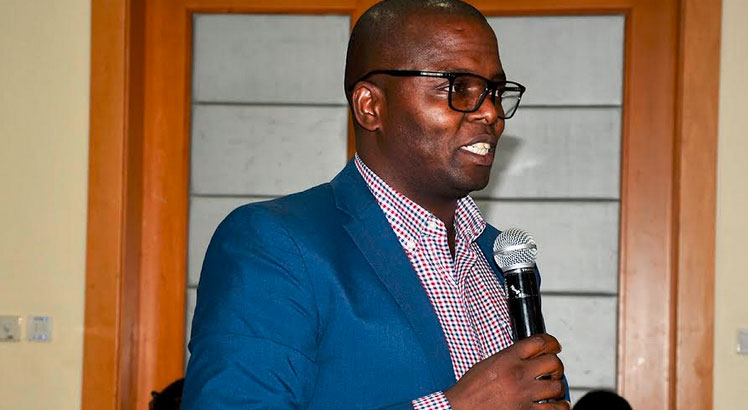5.5G: How far is Malawi?
During the 14th Mobile Broadband Forum 2023 and 9th Global Ultra Broadband conference that took place in Dubai, United Arab Emirates, from October 10 to 13 2023, Huawei Technologies launched 5.5G.
This is a more advanced technology compared to the currently used 5G— a fifth generation of wireless cellular technology that offers higher upload and downward speed, more consistent connection and improved capacity than other previous networks.
Huawei’s executive director of the board and chairperson of ICT infrastructure managing board, David Wang, noted that besides providing more speed of about 10 gigabits, 5.5G maximises digital production activity and accelerates widespread application of digital technologies.
He said: “In the 5.5G era, ultra broadband will focus on further unleashing productivity of digital services so that everyone can access them more easily and efficiently regardless of where they are.

“Such next-generation digital structure will provide ubiquitous 10 gigabits access, elastic ultra-broadband transport and massive computing power supported by hyper-converged data centres.”
However, it was observed during the meeting that a number of countries, mostly in Africa, use lower technologies like 3G. Is Malawi in the group?
Malawi Communications Regulatory Authority (Macra) communications officer Wezzie Nkhoma-Somba said only mobile service providers reached 5G.
She said: “Currently, only Telecom Networks Malawi [TNM] and Airtel Malawi are operators in Malawi providing 5G services. As a regulator, we are looking forward to having more operators migrating to 5G.”
Nkhoma-Somba noted that many films are failing to do so because of the high cost associated with it.
On whether she saw the country reaching 5.5G, the communications officer said it was not mandatory, but stressed that mobile network operators are still pushing to fully roll out 4G which, she noted, has broadband speed.
Airtel Malawi Limited spokesperson Norah Chirwa Chavula said they are yet to roll out 5G because of forex challenges the country is currently facing.
“We are yet to roll out 5G technologies and, currently, I cannot commit timelines largely due to forex challenges we are facing in the country,” she said.
However, her counterpart at TNM plc, Limbani Nsapato, ‘was pleased to announce that 5G was already rolled out in May this year’.

He said: “ TNM Plc took the lead in May this year to becoming the first mobile network operator in Malawi to launch the ground-breaking and industry-revolutionising Fifth Generation [5G] network which delivers the fastest and highest quality mobile Internet speed.
“So far, TNM plc has rolled out 5G sites in Blantyre and Lilongwe while more sites have been earmarked for Mzuzu and Zomba. So, for now, the focus is to expand our 5G footprint which is a big leap from 4G.”
Nsapato maintained that the introduction of 5G services has delivered excellent end-user experiences as it offers Internet speed of up to 600 megabits (Mbps) per site, with 50 megahertz (MHz) of spectrum and up to 1.2Gbps per site with 100MHz of spectrum, which, he said, is a quantum leap over 4G throughputs.
According to him, 5G offers broader capacity and far less latency for multi-media content services such as online gaming, ultra-HD, virtual reality, inter of things (IoT), data mining and synchronisation.
Its network is designed to not only deliver faster, better mobile broadband services while also further improving 4G LTE with the same core technology, but can also expand into new service areas such as mission-critical communications and connecting the massive IoT for uses such as smart-agriculture, automated mining, robotics logistics and manufacturing thus bringing Malawi into the future digital world.
ICT expert Matthews Mtumbuka said the introduction of 5.5G is a big step for the global industry and should reach Africa and even Malawi in a few years’ time.
He said: “You will recall that Malawi experienced mobile boom around 2G. Then came 2.5 G before 3G which came with much better experience in terms of data download speed, giving users the first experience for video streaming and web browsing on the handset.
“We have enjoyed a mid-way version between 3G and 4G commonly known as Long-Term Evolution [LTE] which is sometimes referred to as 4G. In Malawi, you get good data experience when connected to LTE service.”
Mtumbuka disclosed that in addition to speed, 5G has what he called ‘low measure of latency’. He gave an example of someone streaming a live video where there is less buffering or disruptions as well we increasing quality.
In addition, Mtumbuka said with 5G, a lot more devices can be connected to the network at the same time.
The expert admitted that few African countries use 5G, saying this is due to financial challenges.
He said: “Rolling out a new generation of mobile telephony requires a lot of capital expenditure. The reality is that we still lag in Africa in terms of how much is spent on mobile telephony.
“Not all citizens are connected in Africa and only few pay for the service. Many just receive calls and very few have smart phones or enjoy data services. This leads to lower average revenue per user in Africa compared to the developed world. And so, it takes a much longer time in Africa for telcos to recoup their investment before they can invest for the next generation.”
During the Dubai summit, Huawei corporate senior vice-president and president for Carrier BG, Li Peng, described 5G as new economic transformation.
He said: “5G is a critical part of new economic transformation. It enables new generation in general-purpose technologies and for digital industries. The technology is developing fast, opening up new markets and opportunities.
“Future mobile networks need to have six key features: 10 Gbps downlink, 1 Gbps uplink, deterministic networking, support for a 100 billion LOT connections, integrated sensing and communication and AI [artificial intelligence] capabilities.”






One Comment